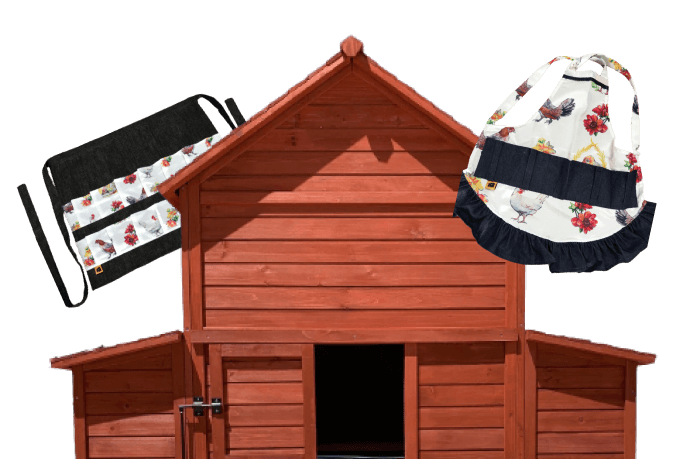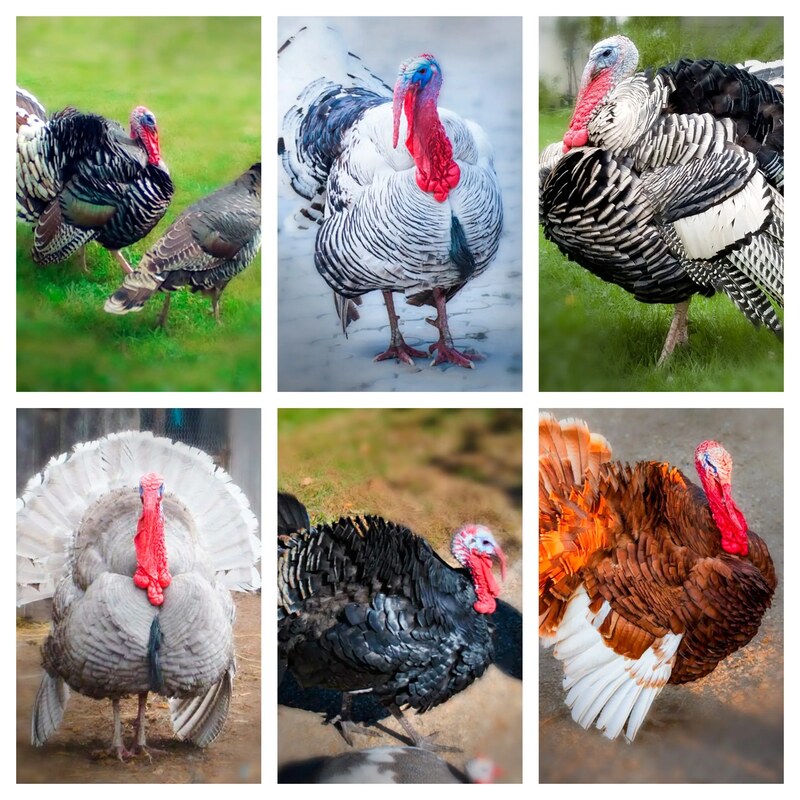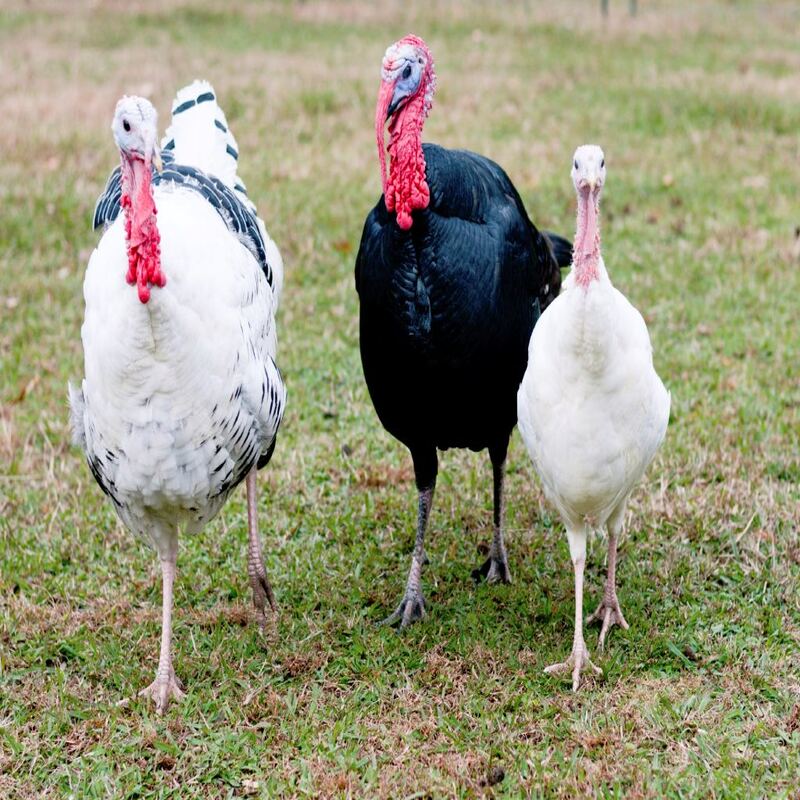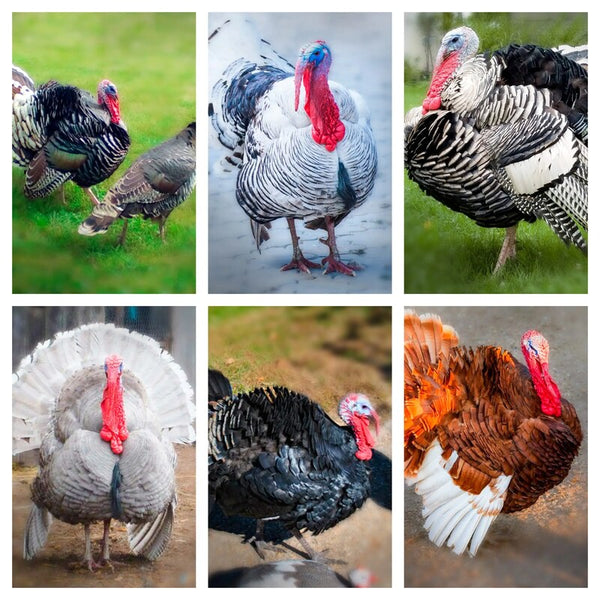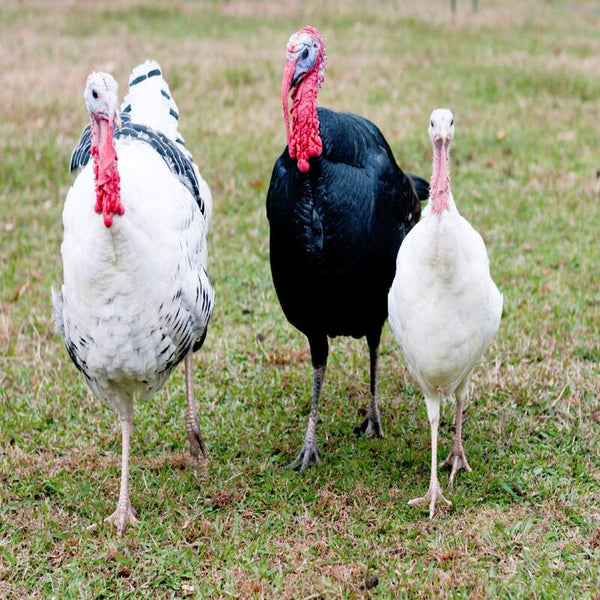Surplus Rare Turkey Special
Surplus Rare Turkey Special
Our Hatchery Choice Heritage Turkey Package offers a unique selection of rare heritage breed turkeys for your flock. This special package may include any of the following beautiful and traditional breeds: Bourbon Red, Royal Palm, Blue Slate, Black Slate, Narragansett, Bronze Heritage Standard Turkey, or Black Spanish.
With "hatchery choice," you receive turkeys that have not been reserved as specific breeds, meaning we cannot guarantee a variety or specific breed selection. It’s possible that you may receive all turkeys of one breed or a mix of different breeds. Please note that we do not keep records of which breeds are sent with each package, and we cannot provide details on the specific color type or breed included in your shipment.
This package is perfect for those who love the element of surprise and wish to add rare and beautiful heritage turkeys to their flock. Place your order today to enjoy a random selection of these stunning turkeys, each bringing a touch of history and sustainability to your farm or backyard! For more details, feel free to reach out to our team.
Heritage Breed Characteristics:
-
Flavorful Meat: Surplus rare turkeys, being part of heritage breeds, usually offer rich, flavorful meat compared to commercially raised turkeys. These breeds are known for their slower growth rates and are typically more flavorful due to natural rearing practices.
-
Slow Growth: These turkeys grow at a slower rate than commercial breeds, which contributes to the traditional flavor of their meat. While this slower growth rate may not make them the most efficient for mass production, it results in more tender and flavorful meat that is prized by those who prefer heritage breeds over industrially bred turkeys.
-
Excellent Meat Quality: Although they may not have the large breast size of commercial turkeys, rare or surplus turkeys often have better quality, firmer, and more flavorful meat, especially in the dark meat sections.

2. Common Rare Turkey Breeds in Surplus Programs:
-
Bourbon Red: Known for its rich, flavorful meat, the Bourbon Red turkey is a medium-sized bird with beautiful red and bronze plumage. It is a heritage breed that is not as fast-growing as commercial turkeys but provides excellent meat.
-
Narragansett: The Narragansett turkey is another heritage breed, often used for meat and ornamental purposes. Its calm temperament and great flavor make it a favorite for small farms and homesteads. It is medium-sized and has excellent meat quality.
-
Royal Palm: Recognized for its stunning appearance with white and black feathering, the Royal Palm Turkey is an ornamental breed. It is also used for meat production, known for its tender and flavorful meat.
-
Black Spanish: The Black Spanish Turkey is a historic breed known for its deep black feathers with a slight blue or purple sheen. It is smaller than commercial turkeys but valued for its rich flavor and ornamental value.
-
Blue Slate: The Blue Slate Turkey is a striking bird with blue-gray plumage, prized for its flavorful meat and relatively calm temperament. This breed has a slower growth rate, which contributes to its tender meat.
3. General Benefits of Rare Turkeys:
-
Genetic Diversity: Raising rare turkeys helps maintain genetic diversity, preserving breeds that have historical or regional significance. These breeds contribute to agricultural biodiversity, which is vital for the resilience of poultry farming.
-
Sustainability: Heritage and rare turkeys tend to be better suited to free-range and sustainable farming practices. They thrive in natural environments where they can forage for food and express natural behaviors. Many rare turkey breeds are hardier and more resistant to disease compared to their commercial counterparts.
-
Meat and Flavor: Many rare turkey breeds are specifically sought after for meat quality. The flavor profile of heritage turkeys is far superior to that of fast-growing commercial breeds. These turkeys are often leaner and more flavorful, especially the dark meat.
-
Ornamental Value: Beyond their role as meat producers, rare turkeys are often raised for their ornamental value. With their striking plumage, they are popular in backyard flocks, farm displays, and poultry shows. Their beauty, combined with their utility, makes them a wonderful addition to any farm.
4. Raising Surplus Rare Turkeys:
-
Space Requirements: Like all turkeys, surplus rare turkeys need adequate space to move around. Free-range environments are ideal, though they can also be raised in large pens with access to the outdoors.
-
Care and Feeding: These turkeys need a balanced diet that includes grains, fresh vegetables, and access to insects or forage. They should be monitored for parasites, and their living conditions should be kept clean to prevent disease.
-
Predator Protection: Since many of these rare breeds are less aggressive and more docile, they can be vulnerable to predators. It's essential to provide a secure environment, especially at night, to protect the turkeys from predators like raccoons, foxes, and birds of prey.
-
Health: Surplus rare turkeys generally require the same care as other turkeys. Common health concerns include blackhead disease, mites, and coccidiosis, which can be mitigated with proper care, sanitation, and preventative measures. Regular checks are important to ensure they stay healthy.
5. Raising Surplus Rare Turkeys for Meat:
-
Butchering: If raised for meat, surplus rare turkeys are usually butchered between 24 to 28 weeks, allowing them to reach a good size while still maintaining a flavorful, tender meat. These turkeys do not grow as quickly as commercial turkeys, but the extra time spent growing contributes to their superior flavor.
-
Meat Yield: While the meat yield from these turkeys may be smaller than from large commercial breeds, the quality of the meat is highly sought after. Dark meat is particularly prized for its flavor, and breast meat is lean but juicy and tender.
Frequently Asked Questions:
What is included in the Hatchery Choice Heritage Turkey package?
A mix of rare breeds, possibly including Bourbon Red, Royal Palm, Blue Slate, Black Slate, Narragansett, Bronze, or Black Spanish.
Will I get multiple turkey breeds?
Variety is possible, but not guaranteed; you may receive all of one kind.
Can I request specific breeds in the Hatchery Choice package?
No, breed selection is random and based on availability.
Do you provide records of the breeds sent?
No, we don’t keep records of which breeds are included in each Hatchery Choice package.
Are these turkeys suitable for breeding?
Yes, they are heritage breeds, suitable for natural breeding and sustainable flocks
Notice: We do not sell items on Amazon or other websites.
